Messed Up at Work? Don’t Do or Say These Things.
Let’s be honest: Everyone and their mom has messed up at work. It’s a natural thing to happen, and will probably occur more times than you’d like to admit.
According to a survey conducted by Censuswide for LinkedIn, 54 percent of working professionals admit to committing a “career fumble,” including having never responded to an email (17 percent), cried in the office (17 percent), overslept (15 percent) or forgotten to follow up after a meeting (12 percent).
While these minor mistakes are usually just hiccups, they can negatively impact your reputation if you don’t handle them in a professional way.
But how exactly should you navigate mistakes at work? Should you overly apologize, hide underneath your desk and blame the first person you see? While a lot of people have used these tactics, they might make things worse. So before you get back to work, check out these 15 things you shouldn’t say or do when you mess up at the office.
Don’t Overthink Your Mistake
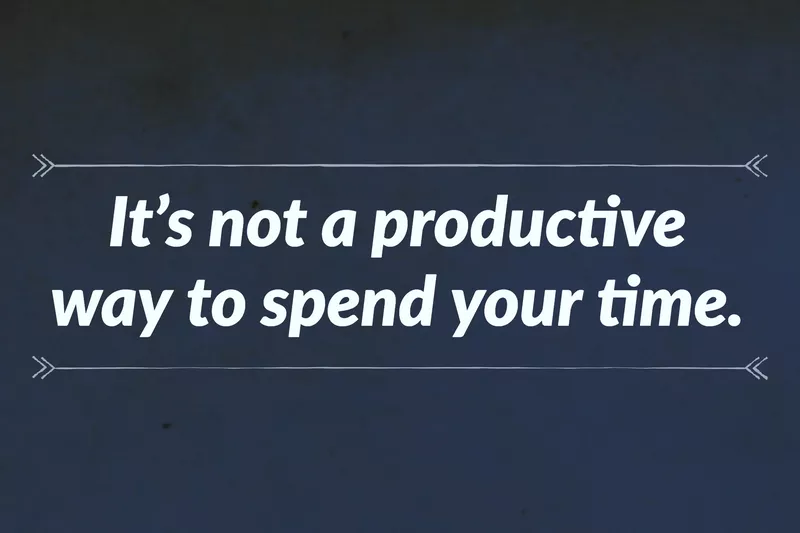
Beating yourself up is just going to make the situation worse. While you can criticize everything you did wrong, it’s not a productive way to spend your time.
“Most ambitious, well-educated folks are very hard on themselves; they’re overly perfectionistic,” Glo Harris, an executive coach, and organizational consultant, told Fast Company. “So, when they feel they have made a mistake, or ‘failed’ in their self-opinion, it’s both disheartening and paralyzing.”
Don’t Forget to Apologize
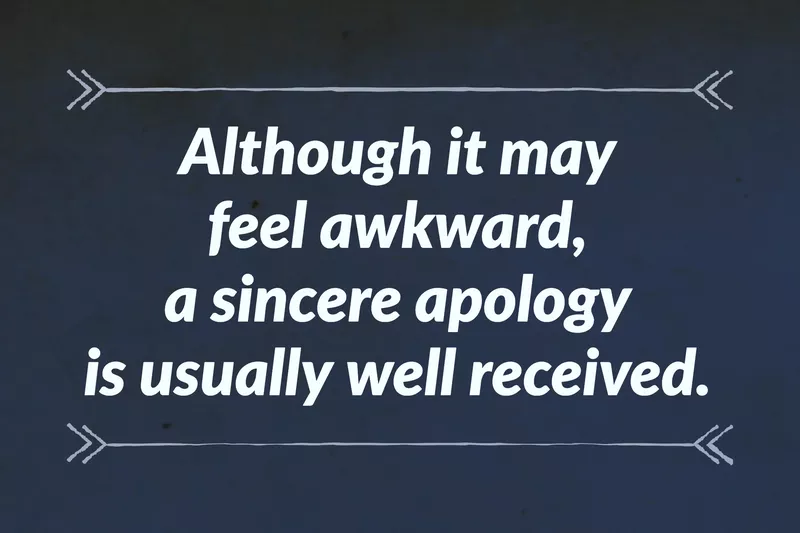
It’s better to be upfront and apologize for the mistake you made. When you try to avoid apologizing, people will assume you don’t know how to take responsibility for your actions, which can make you an untrustworthy co-worker.
“If you recognize the mistake at the moment, apologize right away. Most (53 percent) agree that apologizing is the best way to recover from an interview or career fumble,” writes LinkedIn career expert Blair Decembrele. “In the instance of typos, especially when applying to a job or sending a follow-up note to a prospective employer, apologizing and sending a correction shows that you are accountable and able to recognize and fix mistakes as they occur. Although it may feel awkward, a sincere apology is usually well received.”
Don’t Cover up the Error

While you may be afraid to bring attention to your mistake, it’s never a good idea to make believe that you never messed up in the first place.
“[I]mmediately after you realize you’ve made an error, take a deep breath,” Edward Fleischman, chairman and CEO of The Execu, wrote at Fortune Insiders. “Trying to hide the mistake or cover it up is never the right thing to do. Your mistake will almost always be discovered, and any attempt to conceal it will end up hurting you, your career, and your company far more than the original mistake would have.”
Don’t Assume You Can Fix it Yourself
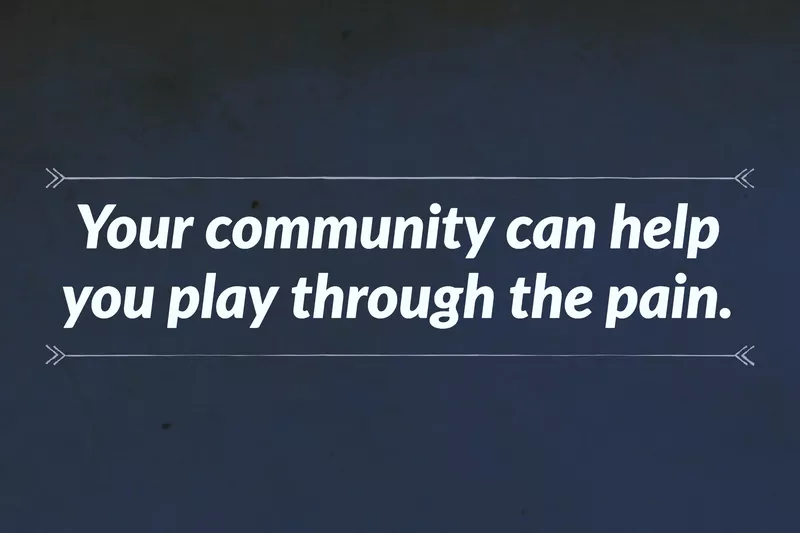
Admitting that you made a mistake is the first step, but assuming that you can fix it without anyone’s help may not be the best way to go about it, especially if you have no idea what you’re doing.
“The majority of working professionals have sought help from someone at work — either their boss (27 percent) or a co-worker (46 percent) — while another 29 percent found help from a connection outside the office,” writes Decembrele. “[Plus,] your community can help you play through the pain. You might discover that someone you know made the same fumble themselves — and lived to tell the tale!”
Don’t Neglect to Ask for Feedback About How You Can Do Better
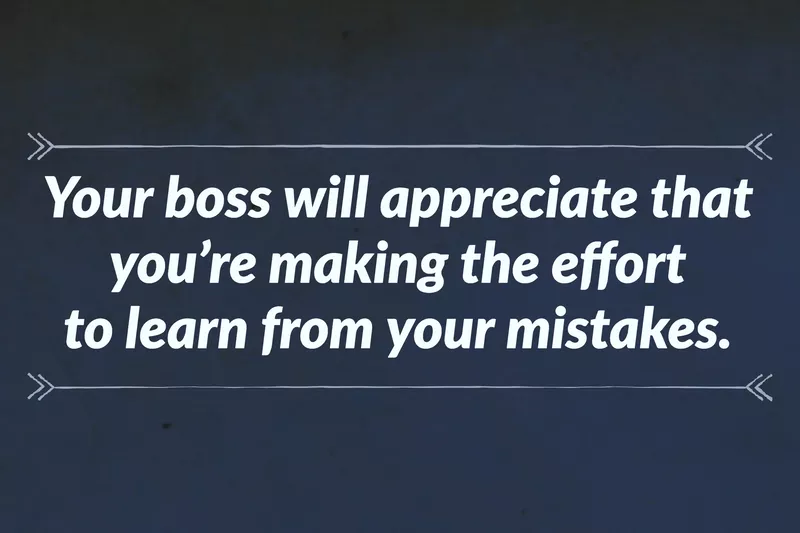
Asking for feedback when you made a mistake allows you to see what you did wrong so you can grow and learn from it. Without taking this step, you’re preventing yourself from learning something new. Plus, your boss will appreciate and will likely be impressed that you’re making the effort to learn from your mistakes.
Don’t Make an Excuse
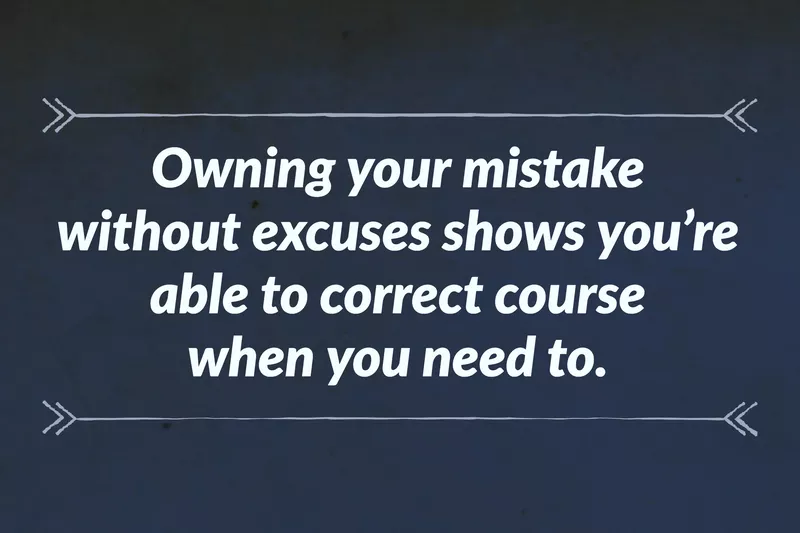
When you make excuses for your poor performance, you’re choosing not to take full responsibility for your actions. This will allow your work peers to dismiss your trustworthiness and prevent you from acquiring future projects. Owning your mistake without excuses shows you’re mature and able to correct course when you need to.
Don’t Be Inflexible
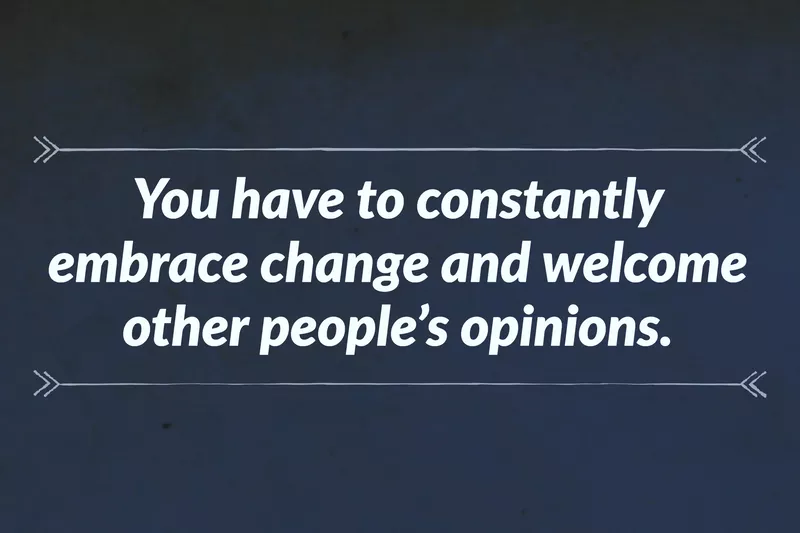
Mistakes are bound to happen, but if you’re not willing to wiggle your work process to fix it, you may be shooting yourself in the foot. Being agile is an essential part of growing and adapting in your position, and you’ll learn more from your mistake if you become flexible.
“You have to constantly embrace change and welcome other people’s opinions,” says executive career coach Elizabeth Pearson. “There’s always something you can take from the direction that they are giving you that you can learn from.”
Don’t Over-Apologize
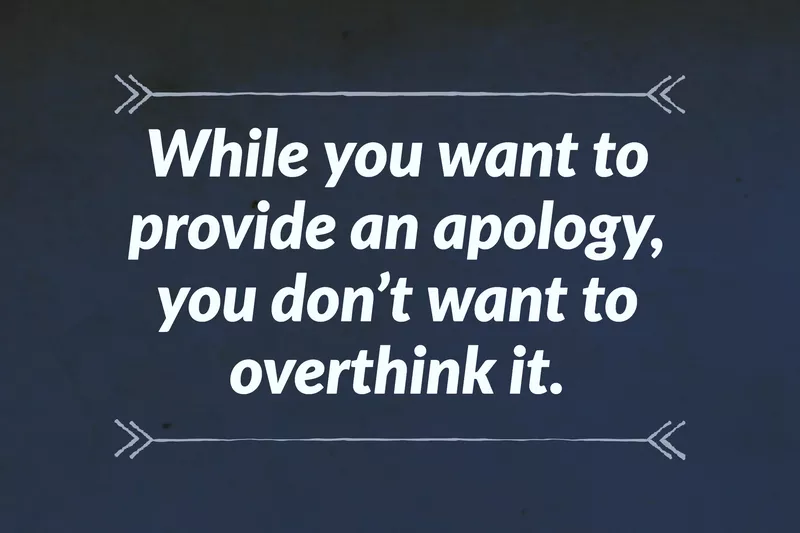
While you want to provide an apology, you don’t want to overthink it. Ashley Cobert writes at The Muse, “Look at it this way: If you’re a consultant, lawyer, or working at an agency, you’re trained to think about your time as billable (doing work that makes money for the firm) versus non-billable. By apologizing and stressing everyone else out versus taking actionable steps to fix the problem,” you could be taking time away from money-making work.
Don’t Just Do the Bare Minimum to Fix Your Mistake
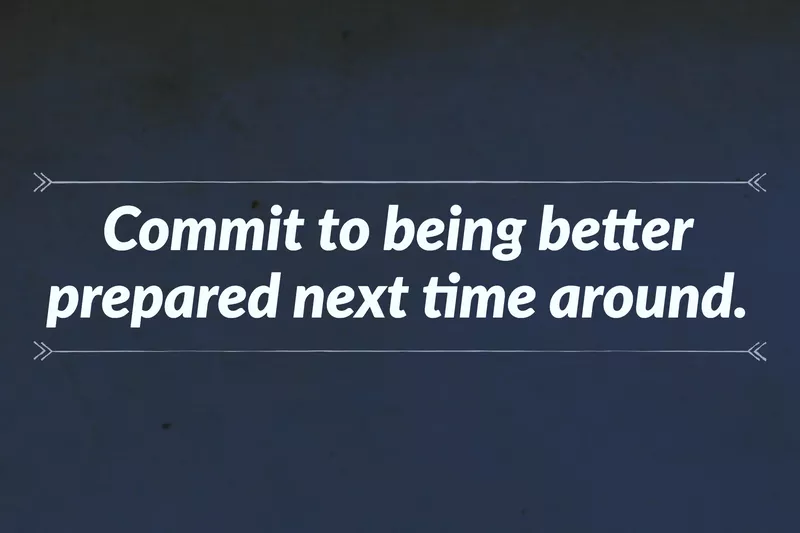
Not going above and beyond when you’re trying to fix a mistake will make others believe that you may be a know-it-all and don’t care about your growth.
“Once you’ve evaluated what went wrong and apologized, figure out how to ensure it doesn’t happen again and go a step further if you can. Many professionals (29 percent) say the best way to recover from a fumble is to educate yourself on the issue, so commit to being better prepared next time around,” writes Decembrele.
Don’t Neglect Trying to Provide a Solution
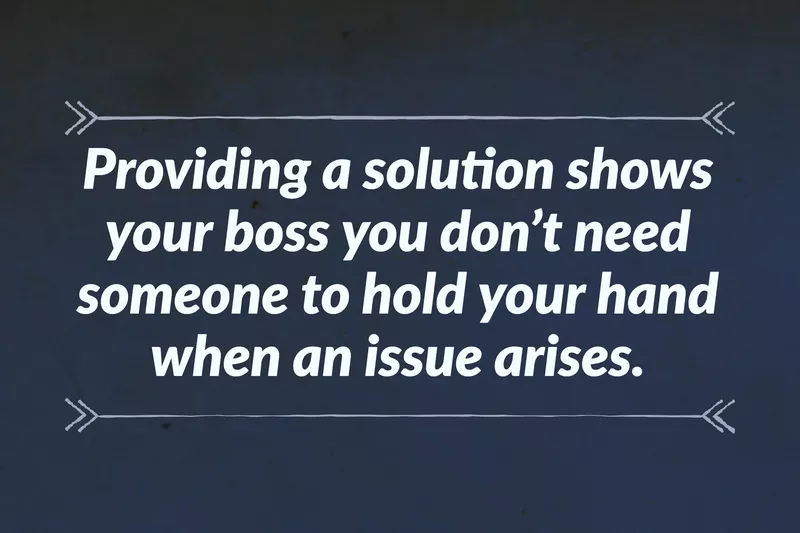
“Offer a solution that will prevent the same mistake from happening again,” writes Karen Hertzberg at Grammarly. “It could be anything from an action plan to a simple takeaway you’ve learned as a result of the slip-up.”
Providing a solution shows your boss and co-workers that you don’t need someone to hold your hand when an issue arises. They’ve hired you because they trust that you can do the work, and the last thing they want is to worry that you can’t get the job done.
Don’t Become Overly Emotional

No need to cry over spilled milk! You’re allowed to make mistakes at work. But even though it’s completely normal to cry or become upset over something you did, you don’t want your emotions to prevent you from taking the next step. If you need to take a break, take it. Grab yourself a coffee, go for a walk or call someone you love. Once you feel better, you can figure out how to fix the problem and move on.
Don’t Blame Others
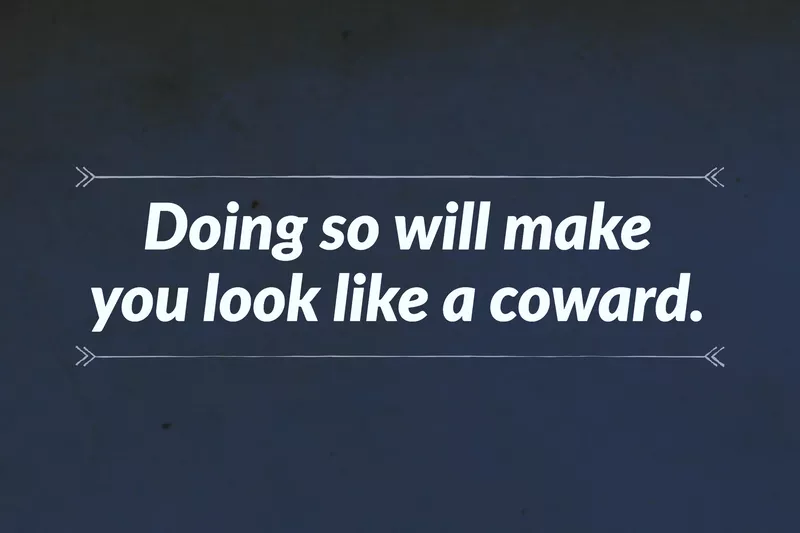
There’s absolutely no reason to blame others for the mistake you made. Doing so will make you look like a coward, which is never a good thing to have attached to your reputation, especially if you’re in a managerial position.
Don’t Rush to Fix the Issue Without a Plan
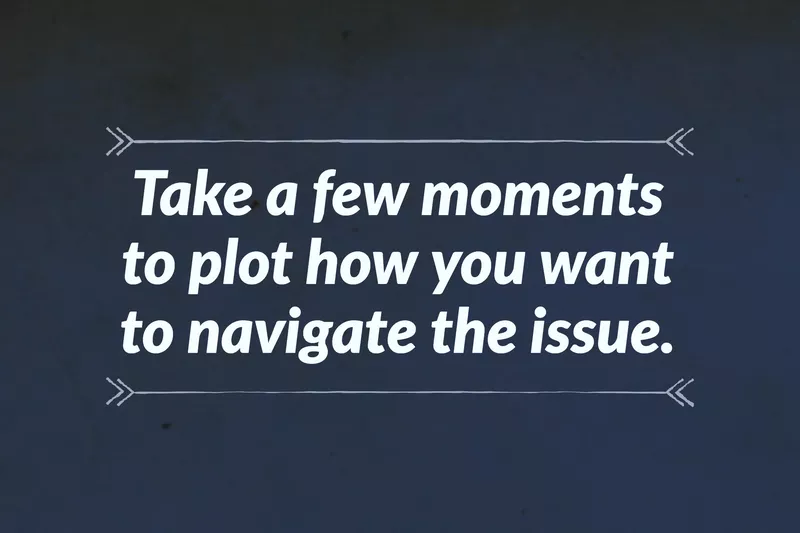
Before you decide to fix your mistake, try to devise a plan. Rushing to solve a problem without a plan can cause even more mistakes and make you look unprofessional. Take a few moments to plot how you want to navigate the issue and remember to ask for help if you need it. The more prepared you are, the better the results will be.
Don’t Fight the Consequences

Depending on how big you messed up, you may receive an email from HR to review the consequences. And unless you truly feel like you did nothing wrong, accept the consequences with open arms. Trying to evade them won’t do you any favors and could lead to termination, in some circumstances. “Don’t get defensive and remain calm,” says career coach Pearson. “The HR managers will tell that you’re being defensive and will worsen the situation that you’re in.”
Don’t Make the Same Mistake Again
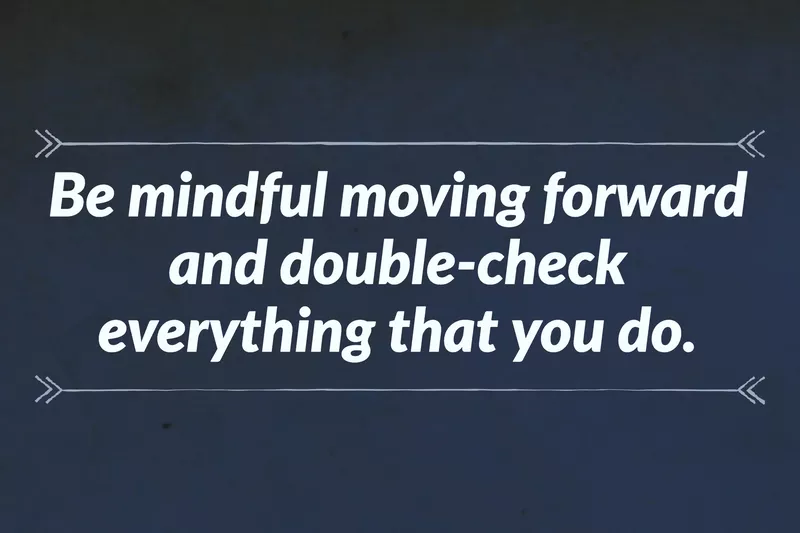
At the end of it all, you ideally want to refrain from making the same mistake again. Be mindful moving forward and double-check everything that you do. While it’s normal to mess up, you don’t want your co-workers or boss to believe that you’re careless or simply not paying attention. Taking the extra steps to make sure you’re doing a good job will prevent future headaches.